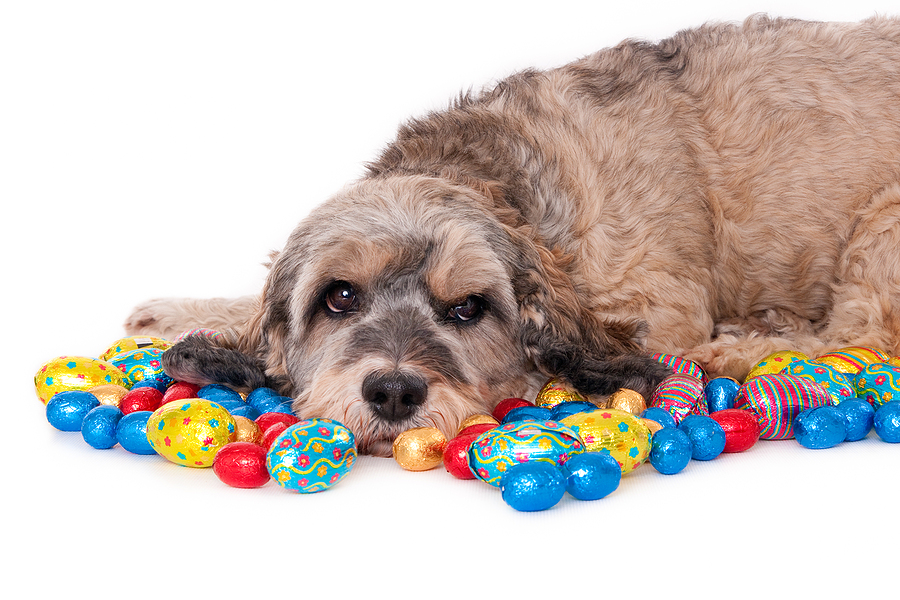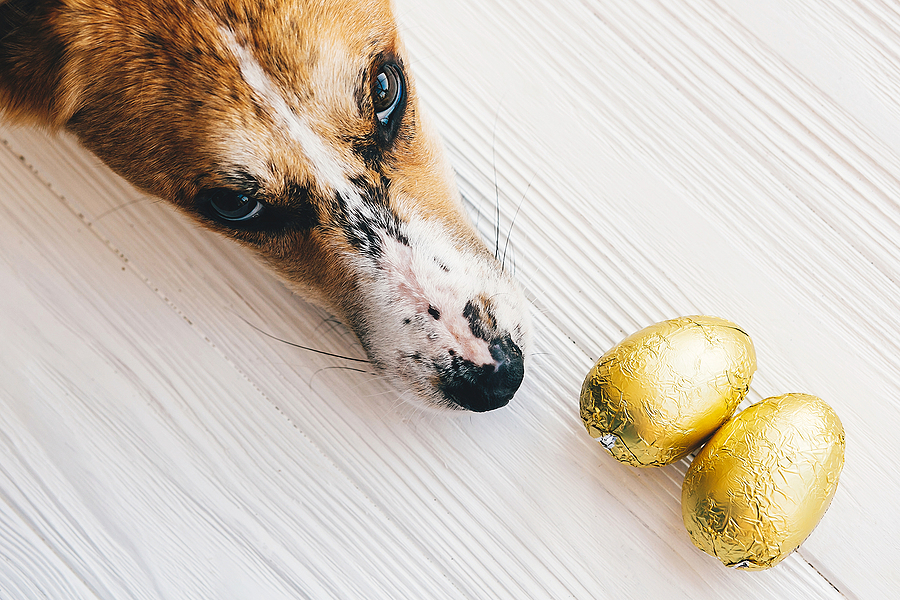Easter egg hazards for dogs
With Easter just around the corner, many households are preparing for the festivities, which often include Easter egg hunts and decorative displays.
While this time of year brings joy and celebration for humans, it can also pose hidden dangers for our furry friends—dogs. As pet owners, it’s essential to be aware of the potential hazards that Easter eggs can present to our canine companions.
Chocolate Danger
One of the most well-known hazards associated with Easter eggs is chocolate. Chocolate contains theobromine and caffeine, both of which are toxic to dogs. Dark chocolate and baking chocolate pose the highest risk due to their higher concentration of these substances. Even small amounts of chocolate can cause symptoms ranging from vomiting and diarrhea to more severe complications such as seizures and even death.
Decorative Dangers
Easter eggs are often dyed or decorated with various materials that can be harmful if ingested by dogs. Paints, dyes, and other decorative elements may contain toxic substances such as lead or other chemicals that can be harmful if ingested. Additionally, plastic eggs or decorations pose a choking hazard or can cause intestinal blockages if swallowed.
Foiled Threats
Many Easter eggs are wrapped in colourful foil, which can be enticing to dogs. However, ingesting foil wrappers can lead to gastrointestinal issues such as vomiting, diarrhea, and blockages in the digestive tract. The sharp edges of foil wrappers can also cause internal injuries as they pass through the digestive system.
Hidden Allergens
Some Easter treats may contain ingredients that are harmful to dogs, even beyond chocolate. Nuts, raisins, and xylitol (a common sugar substitute) are often found in sweets and baked goods, all of which can be toxic to dogs. Even small amounts of these substances can cause adverse reactions, ranging from gastrointestinal upset to more severe symptoms.

Prevention and Precautions
To ensure a safe and enjoyable Easter for your canine companions, consider the following precautions:
- Keep Easter treats out of reach: Store Easter sweets, chocolates, and decorated eggs in secure containers or high shelves where your dog cannot access them.
- Educate family and guests: Make sure everyone in your household, as well as any visitors, understands the dangers that Easter treats can pose to dogs and the importance of keeping them out of reach.
- Monitor your dog: Keep a close eye on your dog during Easter celebrations, especially if there are children around who may inadvertently drop or share treats with them.
- Be prepared: In case of an emergency, have the contact information for your vet or an emergency vet clinic readily available.
By being aware of the potential hazards associated with Easter eggs and taking the necessary precautions, you can help ensure that the Easter weekend remains a safe and joyful time for both you and your beloved canine companions.
Latest posts by Sally - Silversurfer's Editor (see all)
- Stronger bones after 50: How to ensure you’re getting enough calcium - March 28, 2025
- Do you refer to it as Mothering Sunday or Mother’s Day? - March 27, 2025
- Embark on a SixStar Cruise - March 26, 2025
- Do you support the 2.8% pay rise for MPs? - March 25, 2025
- All you need to know about the Radio Teleswitch Service (RTS) switch off - March 24, 2025




















